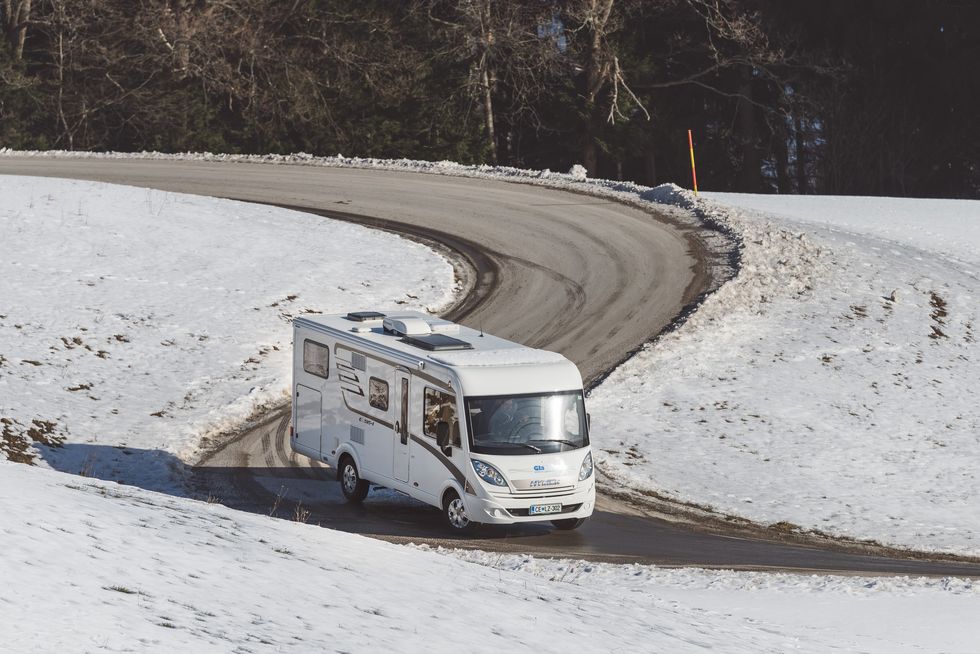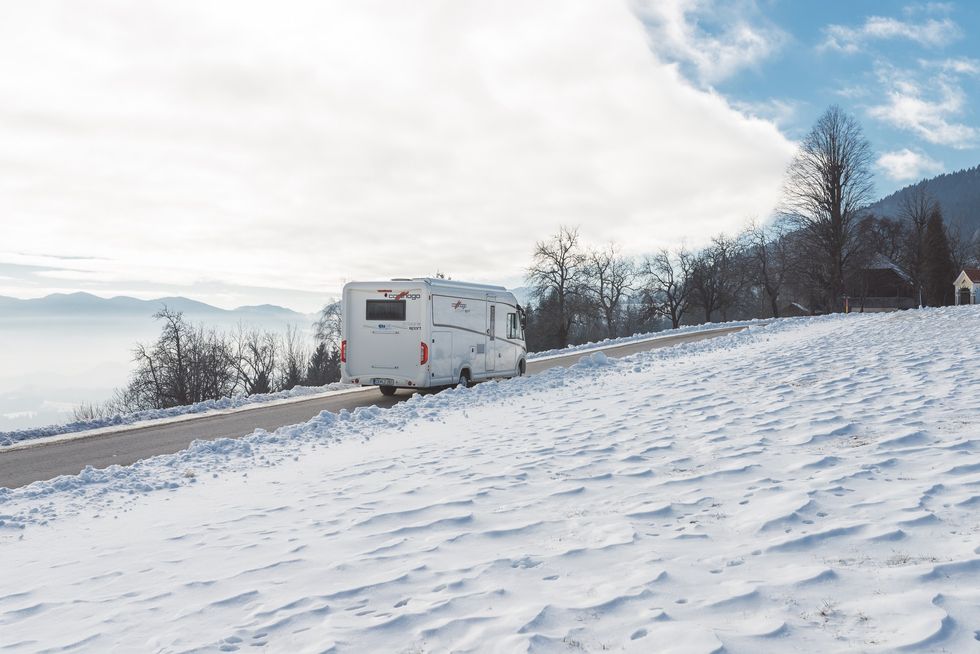Motorhome and campervan owners have been warned to take extra care during the frosty season to prevent expensive repair and insurance costs.
The warning comes after the Met Office issued severe weather warnings for snow and ice, and temperatures are ready to drop to as low as -15°C in some parts of the UK.
Now insurance specialist Motorhome Protect has revealed the one crucial step careful owners need to take to prepare their motorhome or campervan for the frosty seas
The expert warned that “proper winterisation” of the vehicles is important to prevent damage caused by freezing temperatures.
Do you have a story you’d like to share? Get in touch by emailing[email protected]

Owners should ensure vehicles have removed all liquid before hibernating
GETTY
Mark Sheppard, senior trading manager at Motorhome Protect said: “Water left in the plumbing system can freeze, leading to ruptured pipes and damaged water tanks.
“Additionally, the vehicle batteries, tyres and engine fluids require special attention during this time. Considering the expensive repairs that could arise from neglecting these tasks, winterising your motorhome is a wise investment in the long run.”
He explained that the most critical task to complete to winterise a motorhome or campervan is to completely drain the water systems.
Failure to do this could result in future damage during cold weather. This includes all water tanks, pipes, valves and taps which should be emptied while the vehicle is parked over a suitable drainage point.
If the vehicle features a shower, owners should remove the showerhead and let the supply hoses hang into the shower tray to drain, using a drainage accessory like a drain-down kit to ensure all water is removed from the system, the expert detailed.
Meanwhile owners have been urged to keep leisure batteries charged, even if vehicles are not being used in the winter.
Batteries naturally discharge over time and allowing them to fully discharge “could cause irreparable damage” Sheppard stated. “Before owners store their vehicle, they should fully charge the leisure batteries.”
During winter storage, Sheppard said its advisable to check the batteries’ status periodically and recharge if necessary, stating: “Using a trickle charger will maintain the batteries’ charge over the winter.”
He added: “As tyres can degrade over the winter if not properly maintained, it’sa good idea to ensure all winter tyres are inflated to the correct pressure. Some experts recommend overinflating by 0.2 bar for winter storage.”
Before storing vehicles for the winter, owners will also need to check that all vehicle fluids are at their optimum level and in good condition.
This includes engine coolant, antifreeze and engine oil, Sheppard explained. They should also top up the windscreen washer solution as well as fitted with a high-quality window wash antifreeze concentrate to stop ice forming in the window-washer tank, hoses and nozzles.
According to the camping and caravan club, owners should consider where to store the vehicles and put some measures in place to prevent them from deteriorating when stationary during the cold, damp months.
LATEST DEVELOPMENTS:

motorhome owners need to ensure vehicles are completely winter ready
GETTY
The club explained: “For most people the choice on where to store a motorhome over winter is between home or a remote storage compound such as a campsite, specialist storage site, a farm or similar.
“Wherever you choose to store it, you need to be satisfied there are sufficient security measures on the motorhome and protective measures around it to prevent theft of the unit or its contents.”